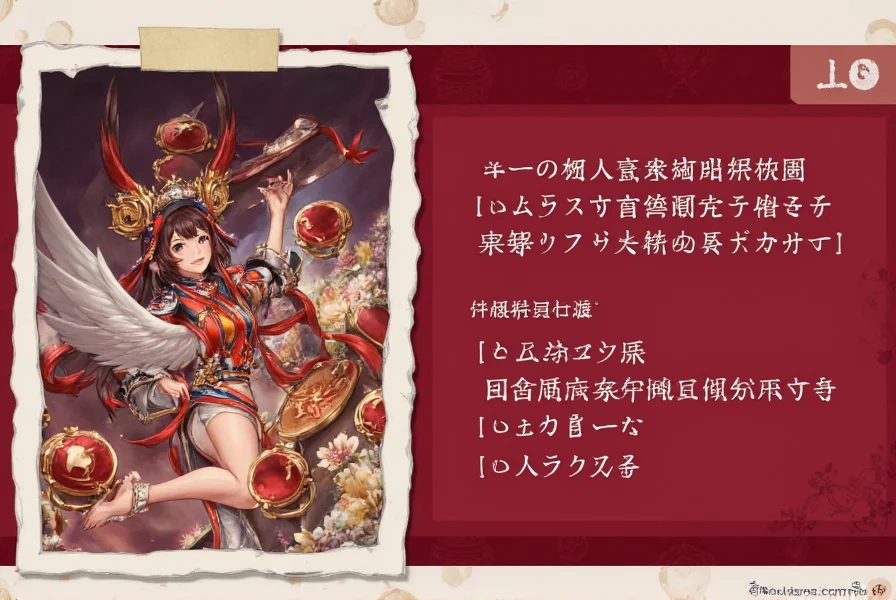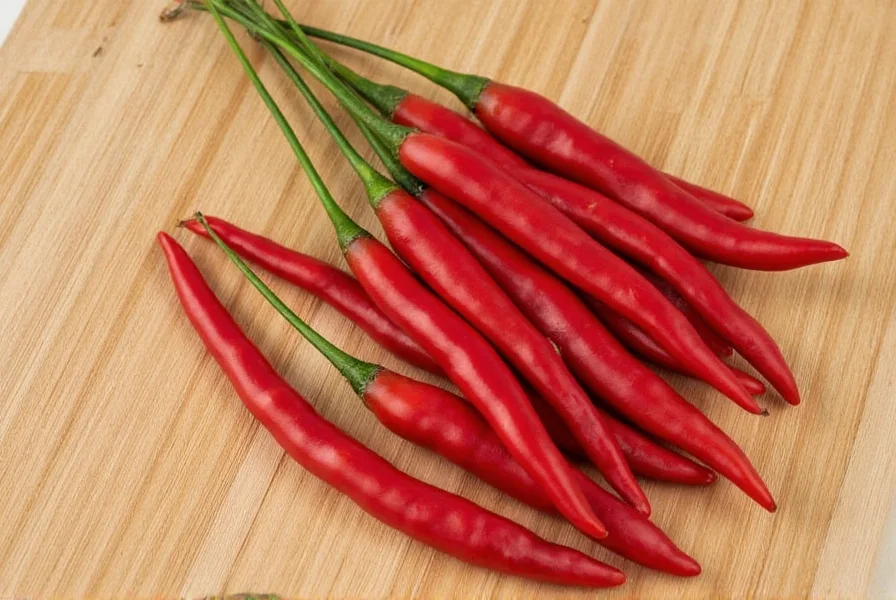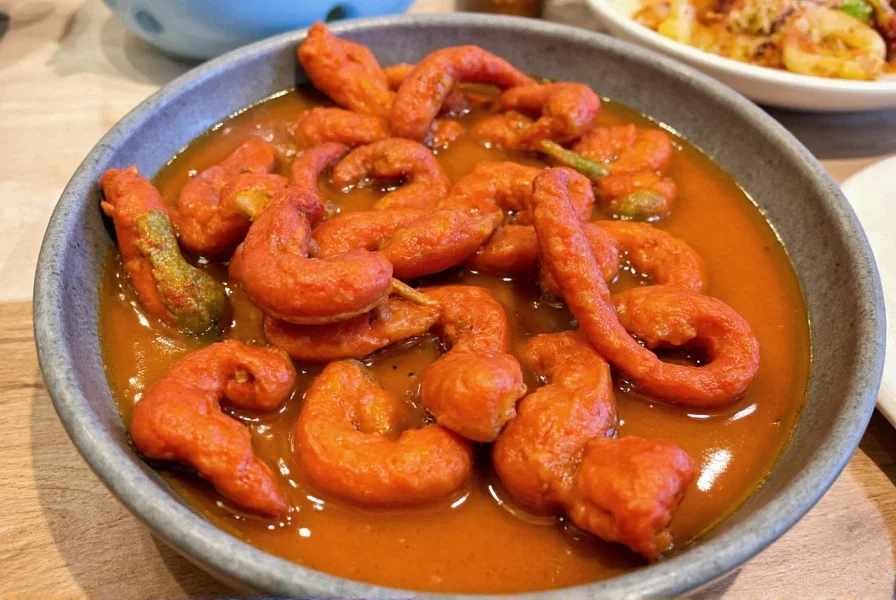Morita chilies are a type of smoked, dried red jalapeño pepper originating from Mexico, known for their smoky, fruity flavor and moderate heat (10,000–30,000 SHU). They are a staple in Mexican cuisine and are often used in mole sauces, salsas, and spice blends.
| Quick Fact | Description |
|---|---|
| Origin | Mexico, made from fully ripened red jalapeños |
| Heat Level | 10,000–30,000 Scoville Heat Units (SHU) — about 2-4x hotter than jalapeños, similar to serrano peppers |
| Flavor Profile | Smoky, fruity, earthy with subtle sweetness and hints of dried berries |
| Best Uses | Mole sauces, soups, stews, salsas, spice blends, and oil infusions |
What Exactly Are Morita Chilies?
Morita chilies ("little blackberry" in Spanish) are dried, smoked red jalapeños harvested at peak ripeness. Unlike green jalapeños used for chipotles, moritas undergo a specific smoking process after full ripening, creating their signature dark purplish-red hue and complex flavor profile. Authentic moritas come exclusively from Mexico, where they've been used in traditional cuisine for centuries.

Flavor Profile: Smoky, Fruity, and Oh So Complex
Morita chilies deliver a balanced flavor that goes beyond simple heat. Think of them as the dark chocolate of the chili world — rich, nuanced, and satisfyingly earthy with a touch of sweetness.
- Smoky: The traditional smoking process (using wood like mesquite or oak) creates a deep, barbecue-like note without overpowering the other flavors.
- Fruity: Full ripening to red before smoking develops subtle berry-like notes, distinct from green jalapeños.
- Earthy: A grounded, woodsy quality makes them ideal for slow-cooked dishes like stews and moles.
- Sweetness: Unlike chipotles, moritas have a noticeable natural sweetness that balances the smoke.
How Hot Are They? Scoville Scale Breakdown
Morita chilies fall in the mild-to-medium range on the Scoville scale, offering manageable heat with rich flavor development. Here's how they compare to common peppers:
| Chili Type | Scoville Heat Units (SHU) | Heat Comparison |
|---|---|---|
| Morita Chili | 10,000 - 30,000 SHU | 2-4x hotter than jalapeños; similar to serrano peppers |
| Chipotle | 5,000 - 10,000 SHU | 1-2x hotter than jalapeños; more intense smoke |
| Hatch Green Chile | 1,000 - 8,000 SHU | Milder than jalapeños; fresh, grassy flavor |
| Jalapeño | 2,500 - 8,000 SHU | Baseline for mild heat; green and vegetal |
Unlike extremely hot chilies, moritas offer a slow-building warmth that enhances dishes without overwhelming them. This makes them perfect for beginners exploring smoked peppers.
Morita vs. Chipotle: What's the Difference?
While both are smoked jalapeños, their ripeness stage and smoking process create distinct flavor profiles:
| Feature | Morita | Chipotle |
|---|---|---|
| Ripeness | Fully ripened red jalapeños | Green jalapeños (unripe) |
| Smoke Level | Lighter, sweeter smoke with berry notes | Darker, more intense smokiness |
| Texture | Softer and more pliable | Drier and harder |
| Heat Level | 10,000–30,000 SHU | 5,000–10,000 SHU |
| Best For | Mole sauces, fruit-based salsas, spice blends | Bean dishes, adobo sauces, smoky marinades |

Pro Tip: For authentic Mexican mole, moritas are preferred for their fruity complexity. Chipotles work better in adobo sauces where intense smoke is desired.
5 Creative Ways to Use Morita Chilies in Your Kitchen
These versatile peppers elevate both traditional and modern dishes. Here's how to use them:
- Traditional Mole Poblano
Toast 3-4 moritas for 1 minute per side, then soak in hot water for 20 minutes. Blend with roasted tomatoes, almonds, cinnamon, and 2 oz dark chocolate for an authentic mole that pairs perfectly with chicken or enchiladas. - Smoky Tomato Soup Enhancer
Add 1 rehydrated morita (chopped) to tomato soup during simmering. The smoke deepens the flavor without overpowering the tomatoes. - Spicy Oil Infusion
Place 2 whole moritas in a bottle of extra-virgin olive oil. Let steep for 2 weeks in a cool, dark place. Strain and use for drizzling over grilled vegetables or roasted meats. - Fruity Salsa Verde
Rehydrate 2 moritas, then blend with tomatillos, roasted garlic, cilantro, and lime juice. Perfect for tacos or as a dip for chips. - Custom Chili Powder Blend
Toast and grind 1/4 cup moritas with 2 tbsp cumin and 1 tbsp oregano. Store in an airtight container for rubs on ribs or seasoning for chili.

Buying Guide: Picking the Perfect Morita Chilies
Authentic Mexican moritas are available at specialty stores and online retailers. Look for these quality indicators:
Key Quality Indicators
- Color: Deep reddish-purple (not black or brown). Avoid overly dark or brittle chilies — they may be old.
- Texture: Should feel pliable, not dry or crumbly. Bend gently; they should flex without snapping.
- Smell: Fresh, smoky aroma with hints of berries. Musty or stale smells indicate spoilage.
- Origin: Must specify "Made in Mexico" or "Jalisco, Mexico" on packaging.
Top Trusted Retailers
| Product Name | Description | Best For | Key Features |
|---|---|---|---|
| Tierra Farm Organic Morita Chilies | Organically grown, sun-dried, and smoked over oak wood | Health-conscious cooks | USDA Organic, Non-GMO, no additives |
| MexGrocer Premium Morita Peppers | Directly imported from Jalisco, vacuum-sealed for freshness | Traditional Mexican cooking | Authentic Mexican sourcing, ideal for moles |
| Chili Country Whole Morita Chilies | Perfect for grinding, stuffing, or rehydrating | Beginners and versatile cooking | Bold flavor, affordable price, easy storage |

Frequently Asked Questions About Morita Chilies
What's the difference between Morita and Chipotle chilies?
Moritas come from fully ripened red jalapeños with lighter, sweeter smoke and higher heat (10K-30K SHU), while chipotles are made from green jalapeños with darker, more intense smoke and lower heat (5K-10K SHU). Moritas have a fruity berry note; chipotles are more rustic and earthy.
How do I rehydrate Morita chilies for cooking?
Cover chilies with hot water or broth and soak for 20-30 minutes until soft. For deeper flavor, simmer gently for 10-15 minutes. Reserve soaking liquid for sauces — it contains concentrated flavor. Never boil, as it destroys delicate notes.
Can I substitute Morita chilies with Chipotle peppers?
Yes, but adjust for flavor differences. Use 20% fewer chipotles than moritas called for, and add 1/4 tsp smoked paprika to compensate for the missing fruitiness. For mole recipes, moritas are preferred; chipotles work better in adobo sauces.
How should I store Morita chilies for maximum shelf life?
Store in an airtight glass jar in a cool, dark place. Properly stored, they'll last 6-12 months. For longer storage (up to 2 years), freeze in a sealed bag. Avoid moisture exposure — it causes mold and flavor loss.
Are Morita chilies the same as smoked jalapeños?
All moritas are smoked jalapeños, but not all smoked jalapeños are moritas. Moritas specifically come from fully ripened red jalapeños, while "smoked jalapeños" may refer to green jalapeños (which become chipotles). The ripeness stage creates distinct flavor profiles.
Final Thoughts: Morita Chilies Are a Must-Have in Your Spice Cabinet
Morita chilies offer the perfect balance of heat, smokiness, and fruity complexity that elevates both traditional and modern dishes. Unlike generic chili powders, they deliver nuanced flavor that enhances rather than overwhelms.
Whether you're making authentic Mexican mole, adding depth to tomato soup, or creating custom spice blends, moritas provide versatile, high-quality flavor. With proper storage and authentic sourcing, they'll remain a kitchen staple for years.
Next time you're shopping for spices, look for Mexican-sourced moritas — your taste buds will thank you!












 浙公网安备
33010002000092号
浙公网安备
33010002000092号 浙B2-20120091-4
浙B2-20120091-4